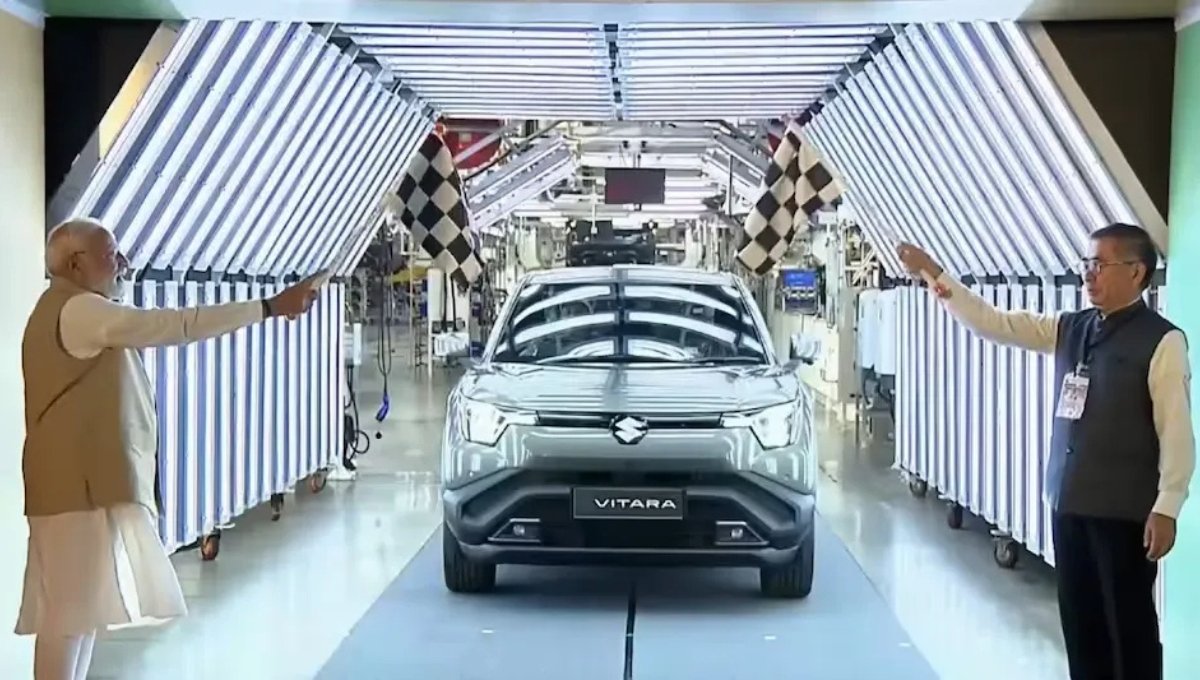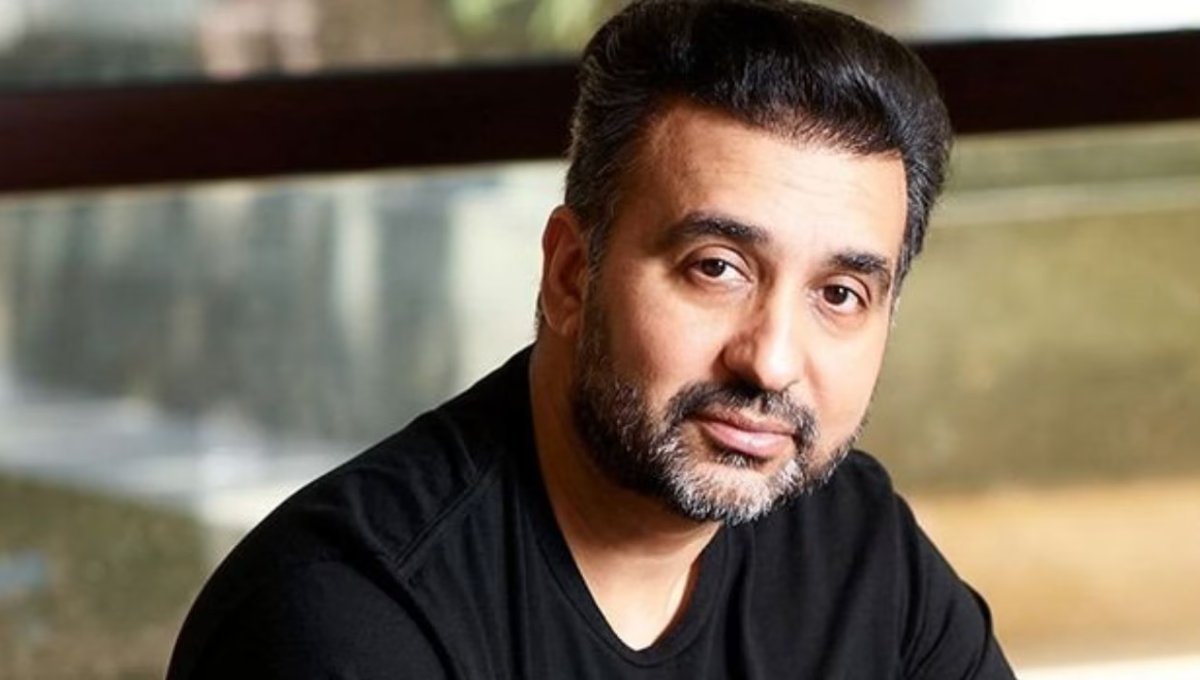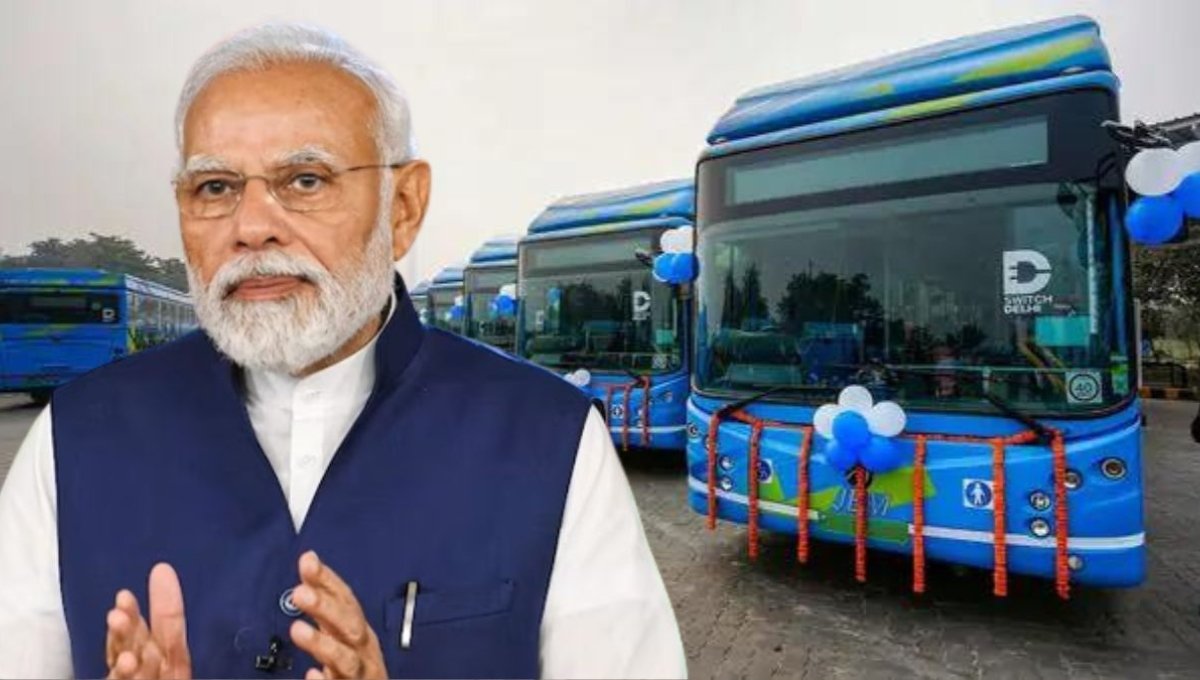India has made history today in the areas of clean energy and electric vehicles. In addition to launching the local manufacture of hybrid battery electrodes, Prime Minister Narendra Modi gave the India Green Mobility Revolution a boost by launching the export of Maruti Suzuki’s first global battery electric vehicle, the e-VITARA, at the Suzuki Motor Plant in Ahmedabad, Gujarat. This move is regarded as a significant step toward India becoming self-sufficient and becoming a global center for electric vehicles.
PM Modi in Gujarat: Big step towards India Green Mobility Revolution
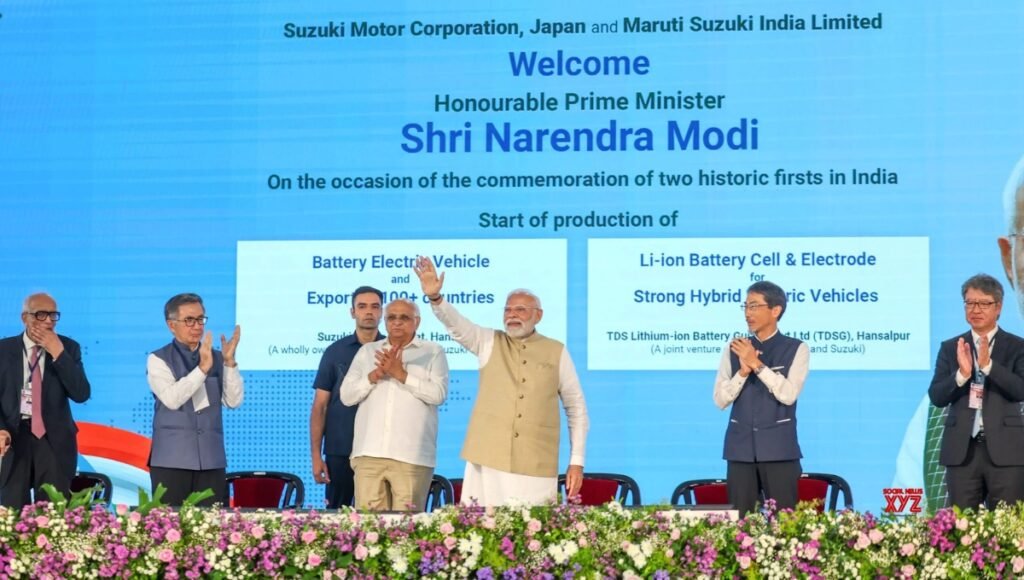
During the program, Narendra Modi stated that this day is particularly significant for India’s green mobility and independence. PM Modi announced the first export of e-Vitara at this event held in Hansalpur. Now, this car made in India will be shipped to over 100 nations, including Europe and Japan.
In addition, the Prime Minister officially opened railway projects totaling over Rs 1400 crore, including the Mahesana-Palanpur railway line’s doubling project. It is evident that India is developing its infrastructure and electric mobility at a rapid pace.
A new journey started from Suzuki Motor
The Suzuki Motor Plant in Hansalpur, Gujarat, is currently in the epicenter of India’s electric vehicle revolution. For Maruti Suzuki, the commercial manufacturing of e-VITARA, which began here, will alter everything. In FY25, the company exported 3.32 lakh vehicles, with an annual capacity of approximately 2.6 million units.
Now that VITARA is being produced, India will serve as Suzuki’s worldwide center. Maruti Suzuki’s first worldwide battery electric car shipment from India indicates that the nation will play a significant role in EV exports in the years to come. After making its debut at the Bharat Mobility Global Expo in January 2025, the Vitara is now being produced commercially.
Hybrid Battery will bring self-reliance
Another significant development in India’s EV sector is the local fabrication of hybrid battery electrodes. The TDS Lithium-Ion Battery Plant, constructed in Hansalpur as part of a joint Toshiba, Denso, and Suzuki venture, will currently generate more than 80% of the battery value domestically. This action will lower the cost of batteries while also bolstering the nation’s clean energy objectives. The government is tying this project to the Self-reliant India Mission for this reason. India has the potential to become the world’s primary hub for EV manufacturing in the upcoming years.
e VITARA: India’s new EV identity
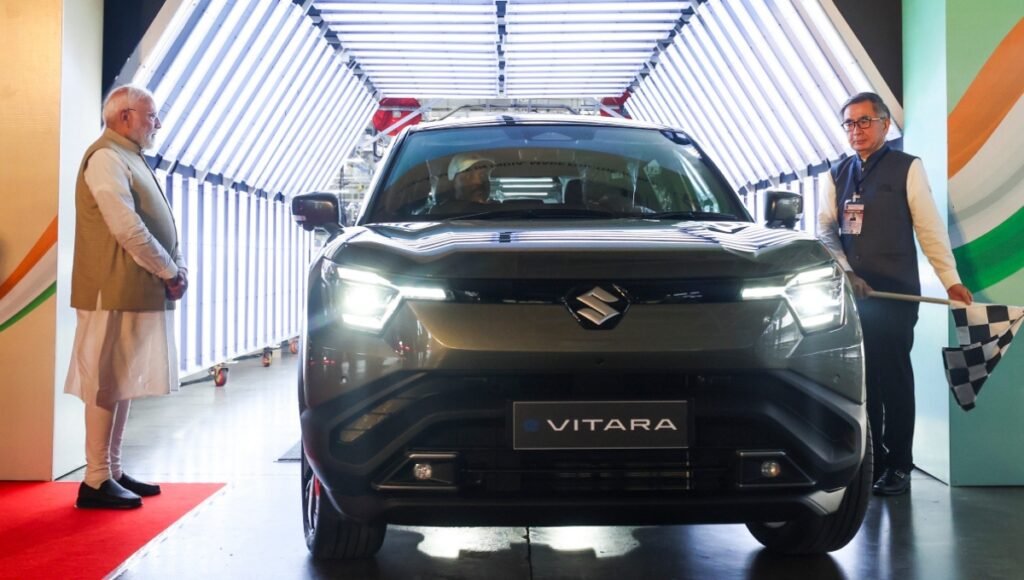
e-VITARA was specifically created with the global market in mind. Its technology, battery range, and design can compete on a global scale. According to experts, this model will be well-liked by young people in both the home and international markets.
According to the firm, many more EV vehicles, such as the VITARA, would be sent from India to the international market in the upcoming years. This would transform not just Maruti Suzuki but the Indian car industry as a whole.
Disclaimer: The information given in this article is based on public sources and official announcements. Before making any official decision or purchase, please check the latest updates from the company and the government.
Also Read:
Pakistani Terrorists in Bihar: Nepal Border Breach Puts State on High Alert
IMD Issues Red Alert: Heavy Rainfall and Flood Threat in Punjab, Jammu and Kashmir, Himachal Pradesh
OpenAI India Arrival: First Office to Open in New Delhi

